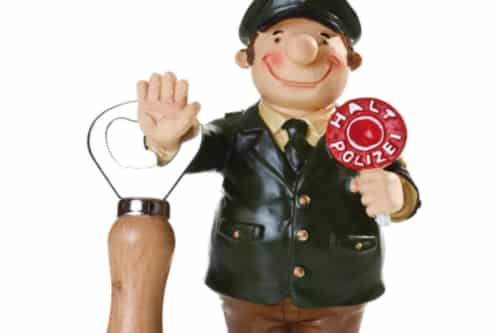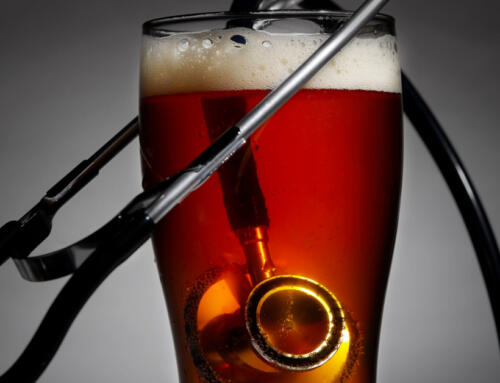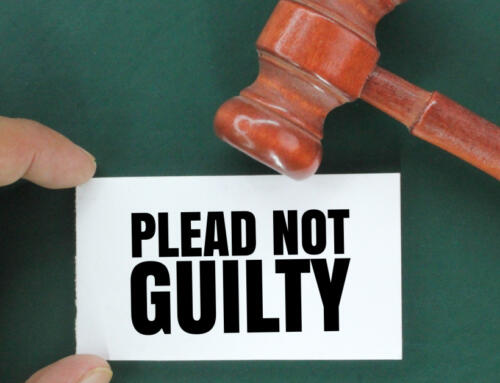When the police pull you over on suspicion of driving under the influence (DUI) in Pennsylvania, one way they will try to prove that you are drunk is by asking you to take the field sobriety tests (FSTs). Taking the field sobriety tests is optional under Pennsylvania law. But, most people don’t know this; and, as a result, they end up “voluntarily” submitting to the FSTs.
Let’s say you took the FSTs during your DUI stop, and let’s say you failed one (or more) of the tests. What can a Philadelphia DUI lawyer do to help?
Challenging Field Sobriety Tests Results in Pennsylvania
There are several ways to challenge field sobriety test results in a Pennsylvania DUI case. While the opportunities that are available vary case-by-case, broadly speaking, the potential issues with field sobriety test results fall into three categories:
1. Challenging the Validity of the Tests Themselves
The first option, when faced with an unfavorable field sobriety test result, is to challenge the test itself. Studies have shown that the field sobriety tests only accurately assess a person’s level of intoxication about 80% to 90% of the time. This means that even if your arresting officer administered the tests properly and accurately assessed your performance according to the standardized testing criteria, there is still a 10% to 20% chance that your results are inaccurate.
There are other issues with the field sobriety tests as well. For example, depending on the facts of your case, arguments a Philadelphia DUI lawyer may be able to assert on your behalf include:
- The FSTs tested your physical agility. Performing well on the field sobriety tests requires a certain amount of physical agility. If you have trouble walking heel-to-toe or balancing on one leg in general, then the fact that you struggled on the FSTs says nothing about your level of alcohol intoxication.
- The FSTs tested your ability to follow instructions. The field sobriety tests are heavily standardized, and this means that officers who perform the tests must read off a fairly lengthy list of instructions. If you have trouble following instructions in general, or if you have trouble paying attention or remembering details when you are in a stressful situation, your “failure” on the FSTs could have been the result of not understanding what you needed to do in order to pass.
- The FSTs tested your ability to perform under stress. Even if you have the physical ability to pass the field sobriety tests and you are able to comprehend the instructions, you still need to actually pass the tests. When you’ve just been pulled over, you are standing on the side of the road with cars driving by, and a police officer is watching your every move, this isn’t easy.
- You just barely “failed” and didn’t get a second chance. In reality, the field sobriety tests are simply a way for the police to gather evidence against you. If you make a single mistake on a single test, you can “fail” and get charged with DUI. There is not an objective scoring system, and you typically won’t get a second chance once the police have a reason to arrest you.
2. Challenging the Arresting Officer’s Administration of the Tests
In addition to issues with the field sobriety tests themselves, a Philadelphia DUI lawyer may be able to challenge your FST results by challenging the arresting officer’s administration of the tests. If the officer did not administer the tests properly, then your results may not be reliable.
There are several administration errors that can call the reliability of field sobriety test results into question. Some examples of these errors include:
- Failing to provide adequate instructions. The police must provide all of the instructions that are required for successful performance of the field sobriety tests, and they must do so in language drivers can understand. Failure to provide adequate instructions is a test administration error that can invalidate a driver’s results.
- Performing the FSTs on uneven or unstable ground. The standardized field sobriety tests are designed to test a driver’s level of impairment based on his or her ability to walk in a straight line and balance on one leg on even and stable ground. If you performed the FSTs on a hill or angled shoulder, or if there were debris, gravel, or wet leaves on the ground, then the tests were more difficult than they should have been.
- Performing the FSTs in bad weather or lighting conditions. Similarly, the tests are also designed to be performed during daylight hours in good weather. If it was dark, if headlights from passing cars impaired your vision, or if it was wet or snowy, then your arresting officer failed to administer the tests properly.
- Improperly interpreting a driver’s performance. Since the field sobriety tests do not have an objective scoring system, your “failure” is based on the arresting officer’s subjective interpretation of your performance on the tests. If the officer improperly interpreted your performance, this is yet another error that could render your FST results unreliable—and that could prevent the prosecution from using your results to prove your guilt in court.
3. Challenging the Validity of Your Test Results
In addition to the issues discussed above, there are a variety of other issues that can impair the validity of your field sobriety test results. If any of the following are relevant to your DUI case, they could provide a defense to your “failed” field sobriety tests in court:
- You were wearing tall or unstable shoes
- Your clothing impeded your ability to walk straight or balance on one leg
- You had an injury that impaired your physical ability
- You had a health condition that impaired your physical ability or your vision
Discuss Your Case with a Philadelphia DUI Lawyer in Confidence
Keep in mind, even if you have grounds to challenge your field sobriety test results, prosecutors could still have other evidence they can use against you. This means that you need to fight your DUI charge by all means available. To find out what defenses you can assert in your case, call 267-758-2228 or request a confidential consultation online today.






